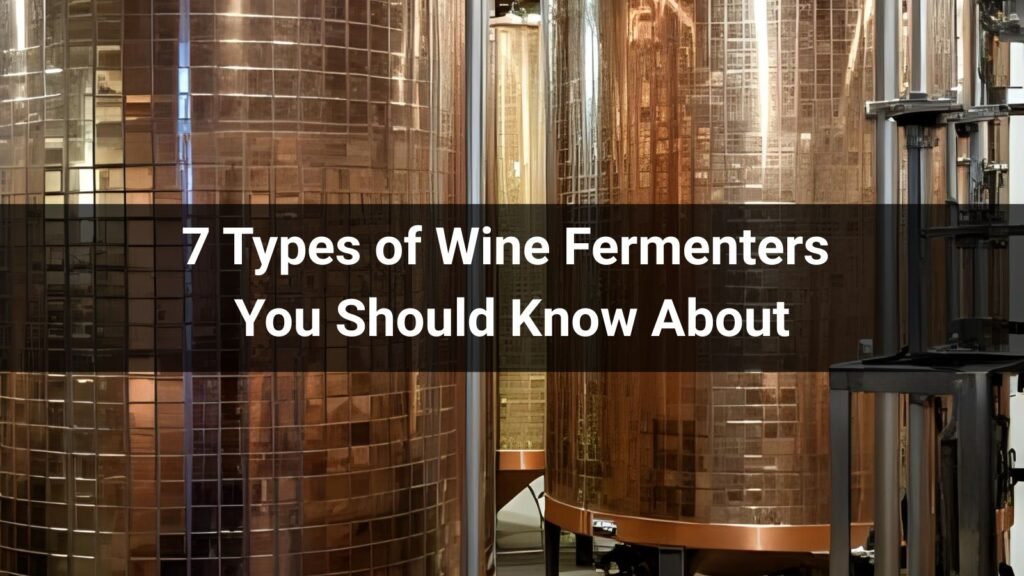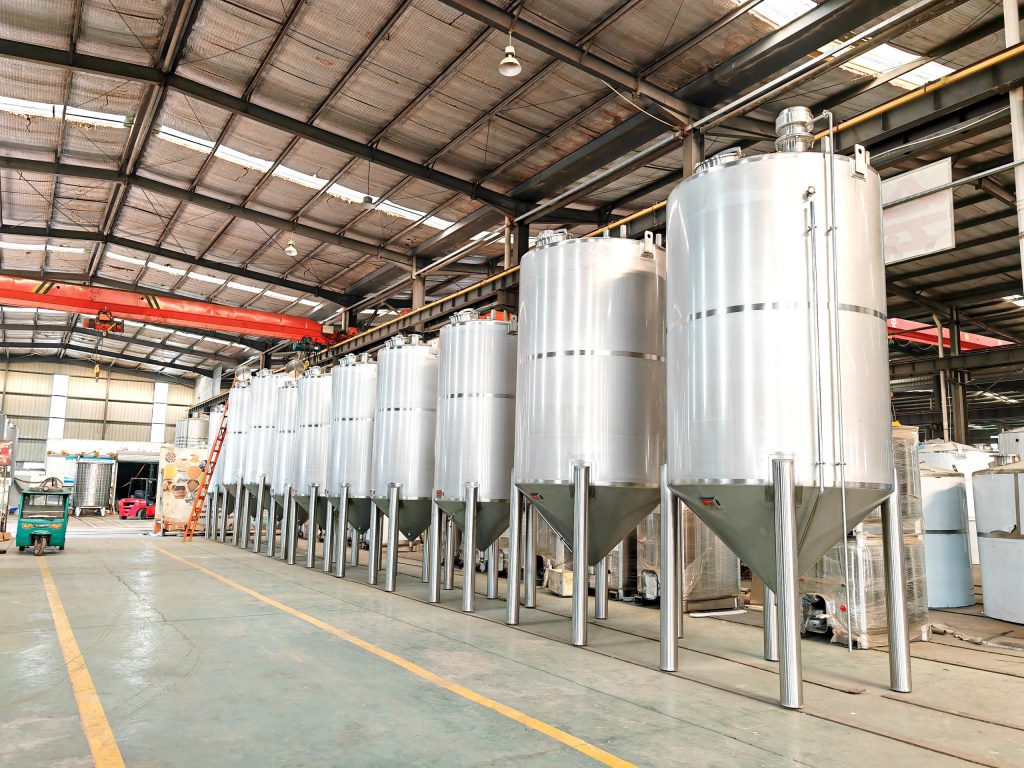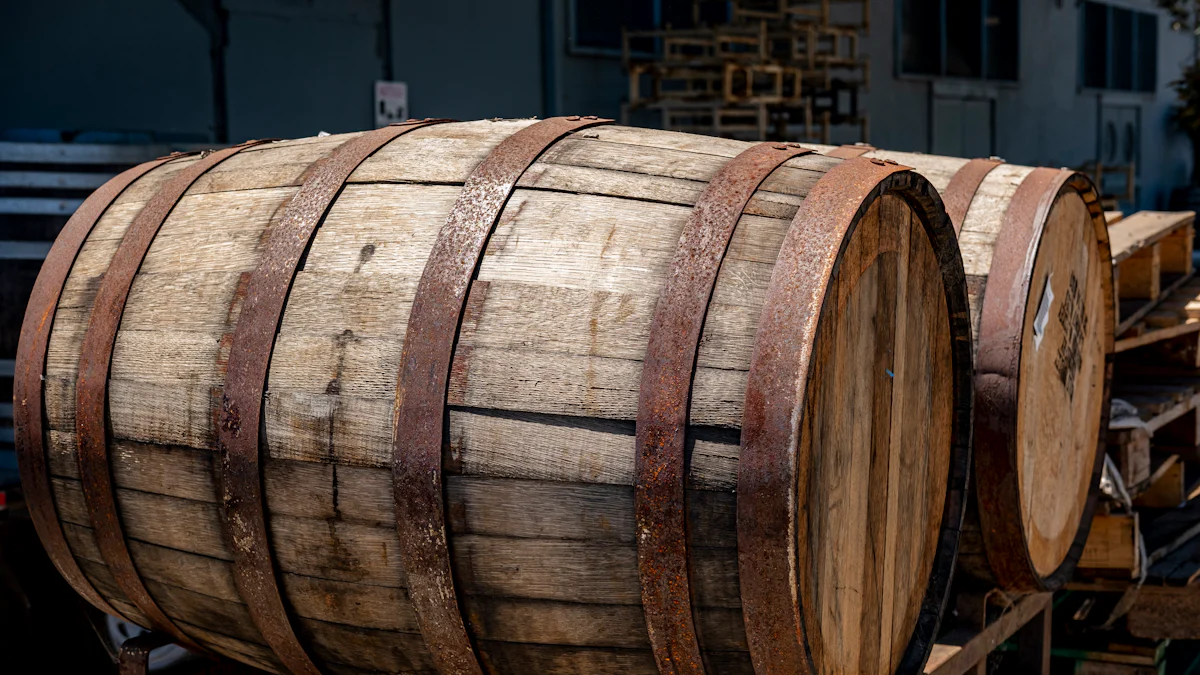
Choosing the right wine fermenter is one of the most critical decisions in winemaking, directly impacting wine
quality, flavor profile, and production efficiency. Whether you’re a commercial winery or a home winemaker,
understanding the different types of fermentation vessels available will help you make informed decisions that
align with your production goals and budget.
Table of Contents
- Characteristics of Different Wine Fermenter Types
- Glass Carboys and Demijohns
- Plastic Buckets and Bins
- Oak Barrels
- Stainless Steel Tanks
- Wood Tanks
- Concrete Tanks
- Conclusion
- Frequently Asked Questions
- Request a Quote
Characteristics of Different Wine Fermenter Types
The choice of fermenter significantly influences wine characteristics, production efficiency, and operational costs.
Each type offers unique advantages and considerations that impact the final product quality. Over 5 years, stainless
tanks cost less than glass carboys and make better wine, making material selection crucial for long-term success.
| Fermenter Type | Capacity Range | Initial Cost | Durability | Flavor Impact | Best For |
|---|---|---|---|---|---|
| Glass Carboys | 1-15 gallons | Low | Medium | Neutral | Home winemaking |
| Plastic Buckets | 1-20 gallons | Very Low | Low | Neutral | Beginners |
| Oak Barrels | 15-150 gallons | High | Medium | Strong | Premium wines |
| Stainless Steel | 50-50,000+ gallons | Medium-High | Very High | Neutral | Commercial production |
| Wood Tanks | 500-5,000 gallons | High | Medium | Subtle | Traditional wineries |
| Concrete Tanks | 1,000-10,000 gallons | Very High | Very High | Minimal | Artisan producers |
Glass Carboys and Demijohns
Glass carboys remain popular among home winemakers due to their affordability and transparency, allowing visual
monitoring of fermentation progress. These vessels typically range from 1 to 15 gallons and provide a completely
inert environment that won’t affect wine flavor.
Advantages:
- Complete chemical inertness
- Easy to clean and sanitize
- Transparent for visual monitoring
- Relatively inexpensive initial investment
- Suitable for small batch experimentation
Disadvantages:
- Fragile and prone to breaking
- Limited size options
- Heavy when full
- Difficult to move safely
- Temperature control challenges
Glass fermenters work best for home winemakers producing small batches or experimenting with different techniques.
However, their fragility and size limitations make them impractical for commercial operations.
Plastic Buckets and Bins
Food-grade plastic fermenters offer the most economical entry point into winemaking. These lightweight containers
are available in various sizes and often come with tight-fitting lids and airlock compatibility.
Key Features:
- Food-grade HDPE or polypropylene construction
- Graduated markings for volume measurement
- Built-in spigots for easy racking
- Stackable design for storage efficiency
- Various color options to prevent light exposure
Considerations:
- Potential oxygen permeability over time
- Scratches can harbor bacteria
- Limited lifespan (3-5 years typical)
- Not suitable for aging wines
- May retain flavors from previous batches
Plastic fermenters excel for primary fermentation but should be avoided for long-term wine storage or aging due to
oxygen permeability concerns.
Oak Barrels
Oak barrels represent the traditional choice for wine fermentation and aging, imparting distinctive flavors and
allowing controlled micro-oxygenation. French, American, and Hungarian oak each contribute unique characteristics to
wine development.
Flavor Contributions:
- Vanilla and spice compounds from oak lignin
- Tannin structure enhancement
- Toast levels affecting flavor intensity
- Micro-oxygenation promoting color stability
- Complex aromatics development
Types and Characteristics:
- French Oak: Subtle, elegant flavors with fine grain
- American Oak: Bold vanilla and coconut notes
- Hungarian Oak: Balanced characteristics between French and American
- Toast Levels: Light, medium, medium-plus, and heavy options
Maintenance Requirements:
- Regular cleaning and sanitization protocols
- Sulfur dioxide treatments between uses
- Proper storage to prevent spoilage
- Periodic reconditioning or replacement
- Careful handling to prevent contamination
Oak barrels require significant investment and maintenance but remain essential for premium wine production,
particularly for red wines requiring complex flavor development.
Stainless Steel Tanks

Stainless steel wine tanks are the most popular choice for wine fermentation, staying closed when not in use so
inert gas fills up any space and displaces oxygen. These versatile vessels offer unmatched durability, precise
temperature control, and complete flavor neutrality.
At Shandong Chenma Machinery Co., Ltd., we specialize in manufacturing premium stainless steel wine fermentation
tanks that meet the highest industry standards. Our stainless steel wine
fermentation tanks are engineered for optimal performance and longevity.
Technical Specifications:
- Material Grade: SS304 food-grade stainless steel (3mm thickness)
- Dimple Jacket: 1.5-2mm thickness for efficient temperature control
- Exterior Sheathing: 2mm SS304 with mill finish
- Capacity Range: From 50 gallons to 50,000+ gallons
- Conical Bottom: 60-degree angle for efficient lees collection
- Insulation: 80mm polyurethane injection for temperature stability
Advanced Features:
- CIP (Clean-in-Place) system with rotating spray balls
- RTD-PT100 temperature sensors for precise monitoring
- Pressure adjusting apparatus for controlled fermentation
- Sample valves for quality testing
- Relief valves for safety compliance
- Carbonation stones for sparkling wine production
Quality Certifications:
- ISO9001-2005 quality management system
- ISO14001-2015 environmental management
- OHSAS18001-2007 occupational health standards
- EU CE certification for international compliance
Our top red wine fermentation tanks
incorporate dual or triple dimple jackets for superior cooling efficiency, essential for maintaining optimal
fermentation temperatures.
Temperature Control Systems:
- Glycol cooling circuits for precise temperature management
- Heating elements for cold climate operations
- Automated control systems for consistent conditions
- Rapid temperature adjustment capabilities
- Energy-efficient operation
Size and Configuration Options:
Chenma offers variable capacity wine tanks
to accommodate different production volumes and space constraints:
- Small Scale: 50-500 gallons for boutique wineries
- Medium Scale: 1,000-5,000 gallons for growing operations
- Large Scale: 10,000+ gallons for commercial production
- Custom Sizes: Tailored to specific requirements
Investment Considerations:
While stainless steel tanks require higher initial investment compared to other options, their long-term value
proposition is exceptional. With proper care, a good stainless tank can last 20+ years, making them cost-effective
over extended periods.
Maintenance Advantages:
- Easy cleaning and sanitization protocols
- Corrosion resistance for longevity
- Minimal flavor contamination risk
- Stackable designs for space efficiency
- Professional appearance for customer tours
For technical support and installation guidance, contact our team at WhatsApp: 008618063421809 or
Email: admin@sdchenma.com. Our facility in Pingyuan County Economic Development Zone, Dezhou City,
Shandong Province houses over 200 professionals dedicated to manufacturing excellence.
Wood Tanks
Large wooden tanks, typically made from neutral woods like chestnut or previously used oak, offer middle-ground
characteristics between new oak barrels and stainless steel. These vessels provide subtle wood influence while
allowing larger production volumes.
Construction Materials:
- Chestnut: Neutral flavor, excellent for large volumes
- Used Oak: Minimal wood extraction, gentle character
- Acacia: Light wood influence with antimicrobial properties
- Cherry: Subtle fruity notes for specific wine styles
Capacity and Applications:
- Typical sizes range from 500 to 5,000 gallons
- Ideal for natural wine production
- Suitable for extended skin contact wines
- Popular in traditional European wineries
- Excellent for blending different lots
Maintenance Requirements:
Wood tanks require similar care to oak barrels but on a larger scale. Regular cleaning, proper hydration, and
careful monitoring prevent contamination while maintaining wood integrity.
Concrete Tanks
Concrete fermentation vessels have experienced renewed interest among artisan winemakers seeking unique
characteristics without wood influence. These tanks offer excellent thermal stability and subtle mineral
contributions.
Unique Properties:
- Superior thermal mass for temperature stability
- Slight alkalinity can buffer wine acidity
- Micro-porous surface allows gentle oxygenation
- Excellent for extended maceration periods
- Distinctive textural contributions to wine
Modern Applications:
- Boutique wineries seeking differentiation
- Natural wine producers
- Extended maceration techniques
- Amphora-style fermentations
- Experimental winemaking programs
Investment Considerations:
Concrete tanks require significant initial investment and permanent installation, making them suitable primarily for
established wineries with long-term production plans.
Conclusion
Selecting the appropriate wine fermenter depends on production scale, wine style objectives, budget constraints, and
operational preferences. While each fermenter type offers distinct advantages, stainless steel tanks provide the
most versatile and cost-effective solution for serious winemakers.
Professional Recommendations:
- Home Winemakers: Start with food-grade plastic or glass carboys
- Small Commercial: Invest in quality stainless steel tanks
- Premium Production: Combine stainless steel with selective oak aging
- Artisan Producers: Consider concrete or wood tanks for uniqueness
At Chenma, we understand that choosing
the perfect wine tank is crucial for success. Our engineering team provides comprehensive consultation to
ensure optimal fermenter selection for your specific needs.
Frequently Asked Questions (F.A.Q.)
What’s the best wine fermenter for professional winemakers?
Stainless steel tanks are overwhelmingly preferred by professional winemakers due to their durability, precise
temperature control, ease of cleaning, and flavor neutrality. Our best fermentation tanks for wine combine
these advantages with advanced features like CIP systems and automated controls.
What’s the best fermenter type for homemade wine?
For home winemakers, food-grade plastic buckets or glass carboys offer the best balance of affordability and
functionality. However, those serious about quality should consider small-scale stainless steel fermenters for
superior results and longevity.
How do I maintain stainless steel wine fermenters?
Proper maintenance involves regular cleaning with alkaline solutions, sanitization with appropriate chemicals,
inspection of gaskets and fittings, and periodic passivation to maintain corrosion resistance. Our maintenance guide provides
detailed procedures for optimal performance.
What size fermenter do I need for my winery?
Fermenter sizing depends on production volume, harvest timing, and operational workflow. Generally, fermenters
should be sized to handle 1.5-2 times your typical batch size to accommodate vintage variations and allow for
headspace requirements.
Request a Quote
Ready to upgrade your winemaking operation with premium stainless steel fermentation tanks? Contact **Shandong
Chenma Machinery Co., Ltd.** for personalized consultation and competitive pricing.
Contact Information:
- Address: Pingyuan County Economic Development Zone, Dezhou City, Shandong Province
- WhatsApp: 008618063421809
- Email: admin@sdchenma.com
- Production Facility: 20,000 m² with 200+ professionals
- Warranty: Three-year quality warranty with free remedies
- Certifications: ISO9001, ISO14001, OHSAS18001, CE certified
Our experienced engineering team provides turnkey solutions from initial design through installation and
commissioning. With state-of-the-art manufacturing capabilities and international quality standards, Chenma delivers
reliable fermentation solutions that grow with your business.
Why Choose Chenma:
- Over 200 skilled professionals
- 20,000 m² modern production facility
- Complete quality management systems
- International certification compliance
- Comprehensive after-sales support
- Custom engineering capabilities
- Competitive pricing with premium quality
Contact us today to discuss your specific requirements and receive a detailed quotation for your wine fermentation
tank needs.



